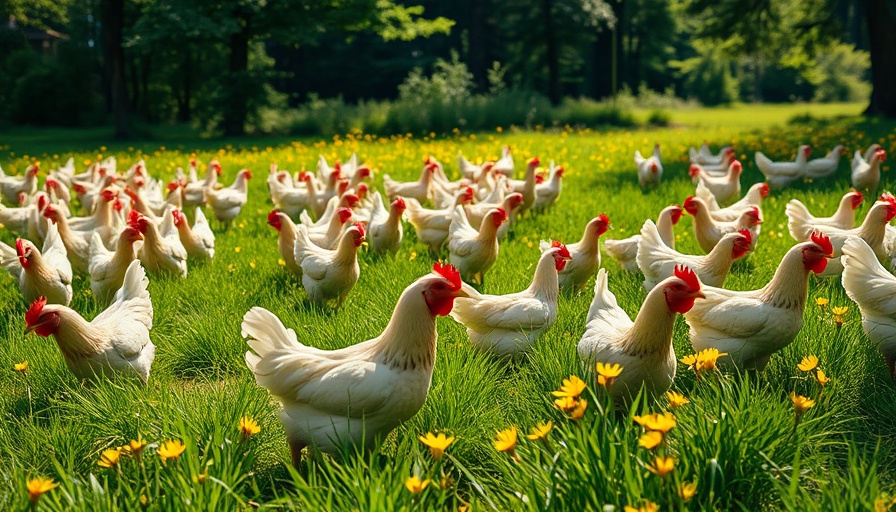
USDA's Strategic Focus on Biosecurity Over Vaccination
In a decisive move, USDA Secretary Brooke Rollins has rejected the option of bird flu vaccines in favor of strengthening biosecurity and facilitating rapid repopulation of poultry affected by avian influenza. This approach comes in response to rising egg prices that have burdened consumers and farmers alike.
Building a Robust Biosecurity Framework
The USDA has committed $1 billion to combat avian flu and stabilize the egg supply, allocating $500 million specifically for biosecurity enhancements. Rollins emphasized that previous vaccination efforts have proven inadequate in addressing the ongoing crisis caused by the H5N1 virus, which has led to the loss of millions of poultry since 2022.
USDA is expanding its successful Wildlife Biosecurity Assessments, which significantly minimize the risk of avian flu transmission from wild birds—responsible for 83% of cases. By sharing up to 75% of costs for necessary biosecurity improvements, the USDA aims to safeguard poultry farms nationwide.
Financial Relief for Farmers
Alongside these biosecurity measures, the USDA is also planning to provide $400 million in financial relief for farmers impacted by the flu outbreaks. This funding will support farmers in repopulating their flocks, thereby expediting recovery after depopulation. Streamlining the approval processes is a vital part of ensuring that farmers can resume operations without undue delays.
Regulatory Reforms Necessary for Economic Stability
Rollins highlights the need to remove unnecessary regulatory burdens that complicate the chicken and egg industry. By collaborating with the FDA, the USDA seeks to enhance innovation while ensuring egg supply continuity. The implications of high egg prices, particularly in states like California, underline the urgency of this initiative.
Public Health and Future Directions
While Rollins has ruled out immediate vaccination strategies, she remains open to exploring potential new-generation vaccines and therapeutics as part of a longer-term solution to minimize the ongoing outbreaks. Engaging with industry stakeholders and incorporating a wide range of perspectives are critical for shaping a comprehensive approach moving forward. As consumers grapple with egg prices, the USDA is committed to finding innovative solutions that safeguard public health while stabilizing the poultry industry.
The USDA's multifaceted plan signifies a renewed dedication to addressing avian flu not just as a biosecurity issue, but as a pressing concern for economic and public health. Farmers, consumers, and health officials alike will be looking to the USDA's progress as it maps out the future of poultry management in the U.S.
 Add Row
Add Row  Add
Add 




 Add Row
Add Row  Add
Add 



Write A Comment